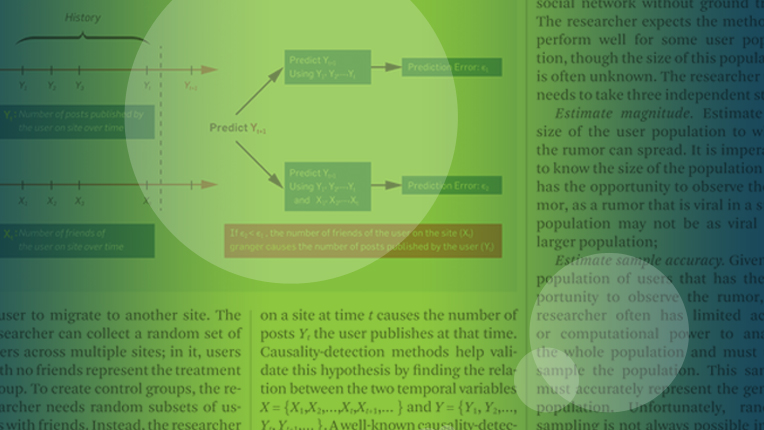CSTA Report
CSTA REPORT TO THE SIG GOVERNING BOARD
Submitted by Chris Stephenson
CSTA Executive Director
Thanks to SGB:
CSTA would like to begin by thanking the Sig Governing Board for its long-standing support. The funding that the SGB has provided over the years, especially in the early ones, has allowed us to take on a number of critical projects which could not have been funded in any other way, and this has certainly been the case this year.
The CSTA Learning Standards
This past year, CSTA undertook the revision of the ACM Model Curriculum for K-12 Computer Science Education. After an extensive review and revision process (involving three successive sets of reviews) the CSTA K-12 Computer Science Learning Standards have been published. This document provides standards for students from K-12 organized around five central strands: computational thinking; collaboration; computing practice and programming; computers and communication devices; and community, global, and ethical impacts. The standards are based on a model where each of the three levels represent a specific set of grades and courses: Level 1 for students in Grades K–6, Level 2 for students in Grades 6–9, and Level 3 with three discrete courses in grades 9–12. Copies of this document have been distributed to the Superintendant (or equivalent) of Education in every state. http://csta.acm.org/Curriculum/sub/K12Standards.html
Since the release of the standards in December, the CSTA Curriculum Committee has been developing a “crosswalk” tool that will allow schools, districts, states, and resource providers to determine the extent of their alignment to the CSTA standards. This template is currently being beta tested and should be available by the spring.
The Running on Empty Report
Running on Empty: the Failure to Teach K-12 Computer Science in the Digital Age presents the results of a study conducted by the Association for Computing Machinery (ACM) and CSTA in 2009 and 2010 to determine the extent to which computer science education is incorporated into current state education standards, and to what extent states allow computer science courses to count as a graduation credit in a required or “core” subject. This report provides a comprehensive report of the research result, a description of the current educational issues that underlie these results, and a set of recommendations for addressing the critical national and local issues that this data uncovers. The power of this report is that it creates state-by-state report cards which serve as a data-supported, visually accessible representation of the appalling lack of presence of computer science in state standards. http://csta.acm.org/runningonempty/
Research
The 2011 National High School Computer Science Survey was completed in 2011. The results are shared via the CSTA website and the CSTA Voice. In addition to the national results, the CSTA website includes the state-level results for all states from which more than 15 surveys were received. CSTA has conducted this survey every two years for the last eight years and the composite results from all surveys are also provided. http://csta.acm.org/Research/sub/HighSchoolSurveys.html
Building Local Communities and Capacity
CSTA exercises its mission to develop and sustain local learning communities for K-12 through the creation of local chapters and the CSTA Leadership Cohort. There are now 35 CSTA chapters in 26 U.S. states and 2 Canadian provinces. CSTA chapters work with educators at the K-12 and post-secondary levels providing resources, professional development, and leadership training for local teachers. CSTA’s Leadership Cohort provides support, resources and professional development for and additional CS teacher leaders in 32 states (with active recruitment in states not yet represented). The Cohort consists of two computer science teachers in each state who has been identified as local leaders. Cohort members receive leadership and advocacy training and access to resource to assist their efforts to improve K-12 computer science education in their states. The cohort members collectively have had a remarkable impact on computer science education in their school districts and states (having CSEd Week proclaimed by their governors and mayors, having computer science made a mandatory course for students in their school districts, and working with their Departments of Education to address critical standards and certification issues). The work of the Cohort was largely responsible for CSTA being recognized by the White House as an “Agent of Positive Educational Change” in 2011. http://csta.acm.org/About/sub/CSTAChapters.html
Request
The SGB ‘s multi-year fiscal support of CSTA will be coming to an end. CSTA would like to request an opportunity to open a conversation with the SGB to explore the possibility of future support (either in the current way or more directly targeted at one or more special initiatives).
Conclusion
Again, the CSTA Board of Directors wishes to express its gratitude to the SGB for its support.
Publish Your Work
Publish with ACM
ACM's prestigious conferences and journals seek top-quality papers in all areas of computing and IT. It is now easier than ever to find the most appropriate venue for your research and publish with ACM.

Career Resource
Lifelong Learning
ACM offers lifelong learning resources including online books and courses from Skillsoft, TechTalks on the hottest topics in computing and IT, and more.

